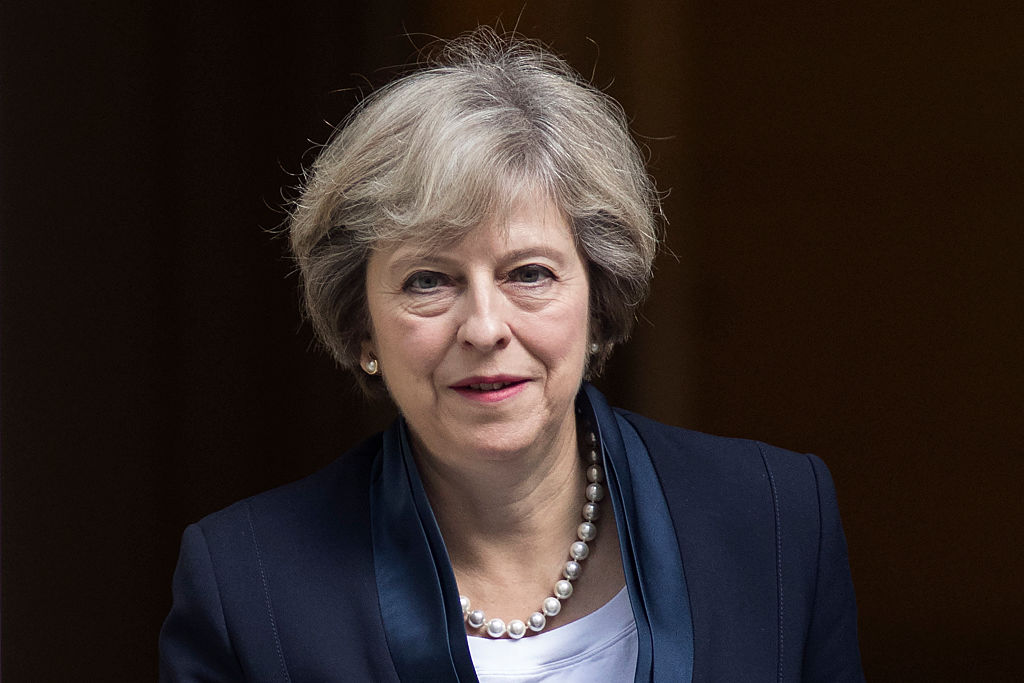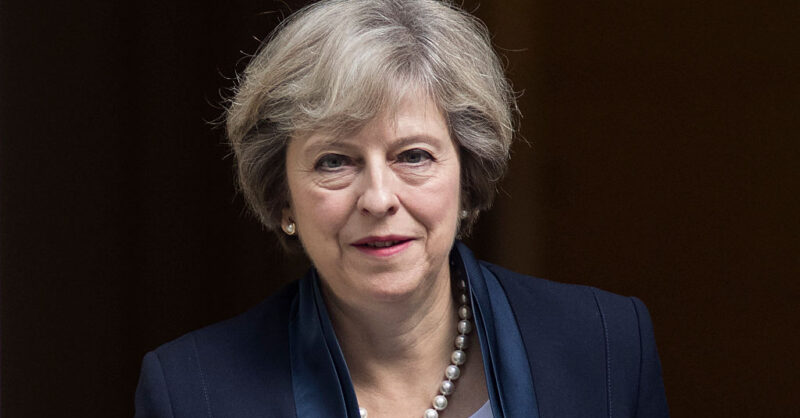
Photo by Dan Kitwood/Getty Images
What is a hero? Rory Stewart, whose latest BBC miniseries The Long History of Heroism has recently concluded, is surely in a position to know – and he suggests Theresa May.
Where and in whom one sees heroism is, of course, a personal question, and one which says quite a lot about you. But I confess that even as someone who admires May for the same qualities as Stewart does (“an incredible sense of dignity and a real attempt to do what she thought was the right thing”), “hero” seems a bit of a stretch. I suspect the fact that she “sacrificed her political career” to try and deliver a soft Brexit plays a larger role in Stewart’s calculations than in mine.
Stewart has his doubts too, of a strange sort: he told the Daily Mail that “it is ‘really difficult’ to see her as a ‘classical hero’ because she failed to achieve her main aims”. But does he really believe that success is a condition of heroism? Here, in the land which valorises Dunkirk? The last stand is a classic heroic trope.
But not any last stand. Crucially, context matters: the commander who dies alongside his men in a doomed but righteous struggle is a hero – the one who leads his troops needlessly to slaughter is not. The absurdity of the Fixed-term Parliaments Act allowed May to make several last stands. They were ultimately, however, of the latter sort.
Many people must share the blame for the position the Conservative Party found itself in after the EU referendum. David Cameron had taken the absurd decision to hold a referendum in which the government would campaign for the status quo, then resigned; the two Brexiteers, Boris Johnson and Michael Gove, had conspired in their own implosions.
Had May stepped onto a field containing only the improbable figure of Andrea Leadsom, she might have cast herself as Cincinnatus. But she chose to enter the full leadership contest, in full knowledge that any leader would be defined by the task of getting Britain out of the European Union – something she had not wanted to do, and for which she had no vision.
The result was the worst of both worlds: a muddled-together “soft Brexit” which didn’t fulfil the aspirations of the Leavers, compounded by a raft of needless and hugely damaging concessions on Northern Ireland, lathered with tough Home Office-flavoured rhetoric about “citizens of nowhere” which aggravated Remainers. Stewart says that May “fought tooth and nail” for her palliative vision for Brexit, such as it was. But she did not fight well.
Subscribe to The New Statesman today from only £8.99 per month
Dashing the same deal to finer and finer smithereens against the House of Commons could be dressed up as determination, yes. Or it could simply reflect the terminal inability to adapt to changing circumstances which is so often the hallmark of a poor general. To say that May “sacrificed her career” for her vision of Brexit presumes that she was capable of taking, or even envisioning, other courses of action. The evidence of her premiership, at least to those of us who didn’t work with her personally, offers little reason for believing so.
Perhaps the personal perspective is what really matters. Classical heroism, of the sort Stewart discusses in the early episodes of his series, seems to be mostly a trick of perspective. It lies always in the past, where the lens of myth and memory has smoothed the rough edges and turned events into stories. JS Mill warned his readers in On Liberty against society “rejecting the stuff of which heroes are made, because it knows not how to make them”; Julius Caesar, a classical hero by any definition, mourned the enchanted age in which he presumed Alexander to have lived.
Stewart posits that the age of heroism died in the trenches of the First World War, which put paid to the ideals of great warriors and martial glory, with TE Lawrence embodying the change as a man who tried to live as a classical hero but failed. Anyone familiar with the long sweep of the history of war be sceptical. The Great War was a horrifying meatgrinder of a conflict, to be sure – but was the Thirty Years War any less? For that matter, were there no heroes in the Second World War?
Yet consider the timespan involved, and the role of the Great War in Stewart’s thesis seems clear enough. It is far enough away that we can start to grasp its mythic outline (even more so for the age which preceded it), but well-documented enough that we can see all those details which muddy a heroic narrative.
But if grand heroism is a trick of the light, actual heroism is a human constant, and it does not require any grand stage upon which to play out. Heroism is simply a test of one’s ordinary character (and perhaps judgement) in extraordinary circumstances; for good reason is “a hero to his men” another well-worn trope.
Perhaps May was a hero to her men, fighting the good fight against insurmountable odds. But with the benefit of a bit of distance, it seems fairer to say that whatever courage it took to leap into the hole in British politics, spade in hand, all her efforts added up to was to dig an even deeper hole.
[See also: Will we ever be free of Brexit?]
Content from our partners

